A mind-reading combat jet for the future
- Published
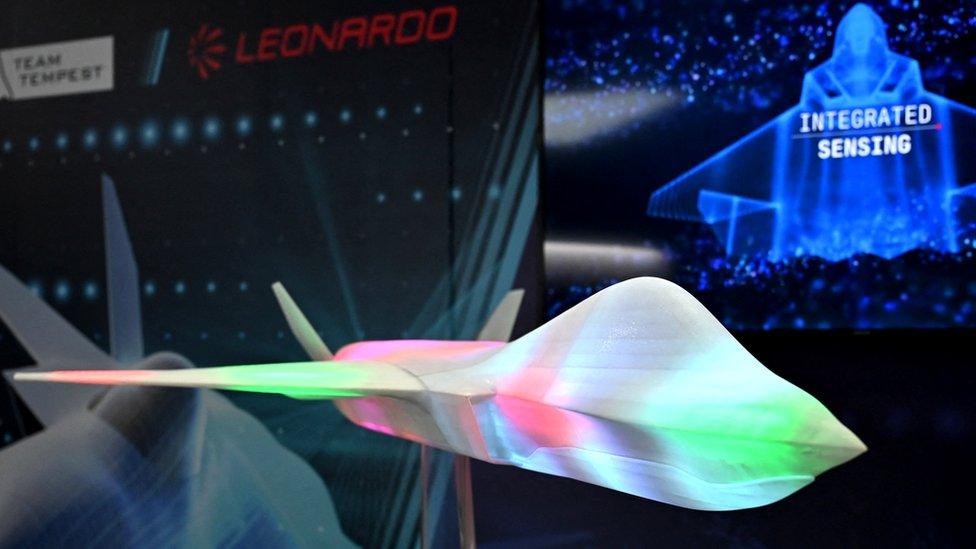
A demonstrator model of the Tempest is due to fly in 2027
During World War II, Spitfire pilots described their plane as so responsive it felt like an extension of their limbs.
Fighter pilots of the 2030s, however, will have an even closer relationship with their fighter jet.
It will read their minds.
The Tempest jet is being developed by the UK's BAE Systems, Rolls-Royce, European missiles group, MBDA and Italy's Leonardo.
One feature will be an artificial intelligence (AI) tool to assist the human pilot when they are overwhelmed, or under extreme stress.
Sensors in the pilot's helmet will monitor brain signals and other medical data. So, over successive flights the AI will amass a huge biometric and psychometric information database.
This library of the pilot's unique characteristics means the on-board AI will be able to step-in and assist if the sensors indicate they may need help.
For example, the AI could take over if the pilot loses consciousness due to high gravity forces.
At the Farnborough Air Show, BAE Systems said that by 2027 it will be flying a demonstrator jet from its Warton plant in Lancashire that will test some of these technologies.
This aircraft will be a test-bed for a host of different digital capabilities - among 60 different demonstration projects, some of which will be entirely software-based.
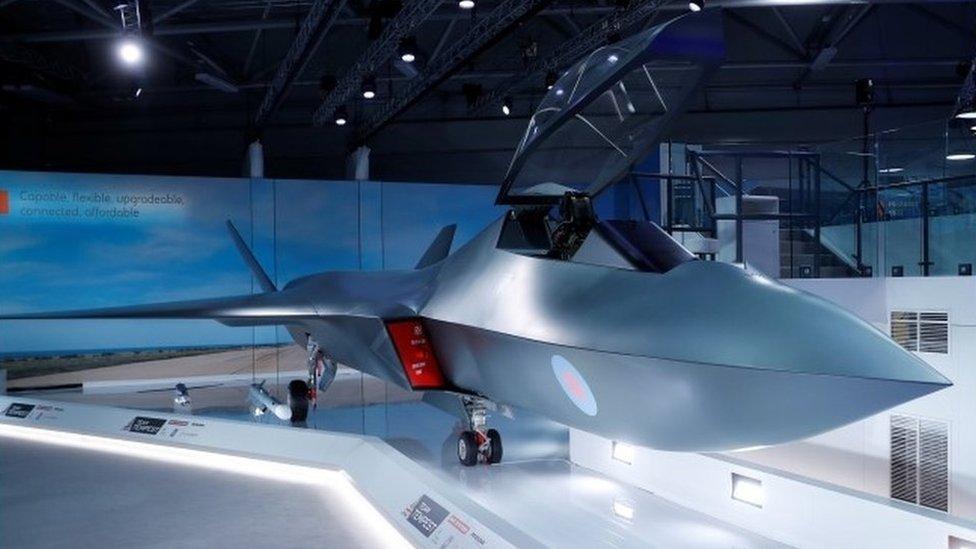
When images of the Tempest were first released in 2018 it was dubbed the "pregnant pelican"
The appearance of the Tempest aircraft has matured since early images were first released of it in 2018. Among other things Its weight has been reduced and its outline slimmed down.
When it eventually takes to the skies, the Tempest will likely be routinely flanked by un-crewed combat drones, described as 'adjuncts' by the Tempest consortium.
Such advances will require entirely new systems of monitoring and control to be built from scratch.
"We have to deal with the pace of change in technology" says John Stocker, Tempest's business development director.
"In the past, defence spending frequently drove advances, with commercial technology catching up later. Now, commercial technology is often more advanced."
Mr Stocker envisages building the new fighter with systems that can be upgraded as easily as downloading an app onto a smartphone.
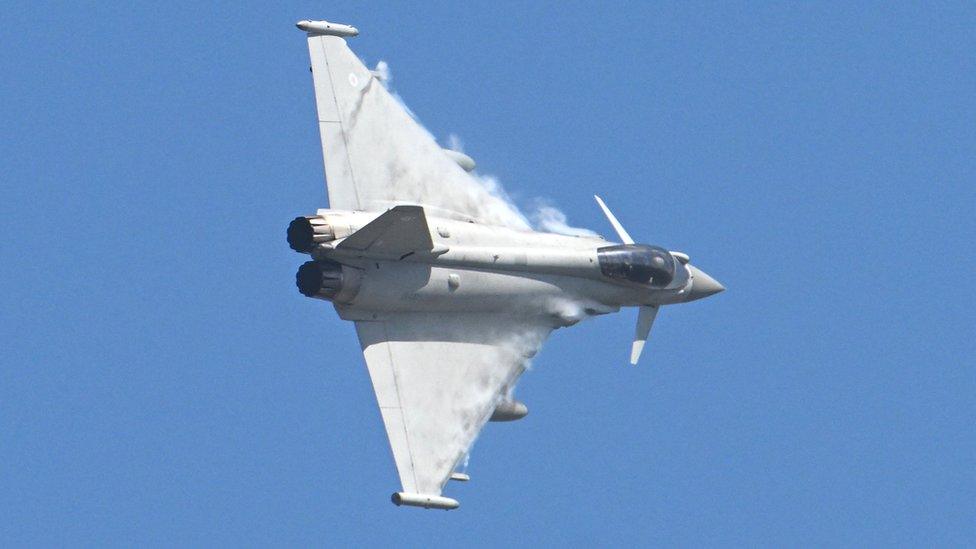
The supersonic Tempest's predecessor the Typhoon fighter jet
Meanwhile, much of the manufacturing of the jet will be automated. Robots on the production line will share data with suppliers, so parts can be quickly dispatched.
The project will also see BAE Systems and Leonardo co-operate with Japan's Mitsubishi - Mitsubishi's F-X future fighter project has much in common with Tempest.
This is a new experience for European aerospace businesses, but greater cooperation with Japan has been made possible because projects exist in a digital realm.
"You can do these things a lot quicker in a digital environment, collaboration is much easier. We're not carrying briefcases between Tokyo and Warton," Mr Stocker jokes.
A team of interpreters and staff who can communicate fluently in both English and Japanese on deeply technical matters keeps the alliance with Mitsubishi's F-X fighter team going.


Leonardo's Edinburgh-based radar arm is also working with Mitsubishi.
The popular idea of radar as a rotating dish, scanning ahead and bouncing signals off approaching objects, has given way to digital examination of sensor data.
However the sensors pick up far too much detail for a human brain to assess, which is why AI has become critical in analysing and processing the torrent of data.
In the Tempest, it is hoped AI will act as a kind of gatekeeper, preventing the pilot from becoming overwhelmed by incoming intelligence.
The whole project is being devised in parallel with weapons manufacturer MBDA. Missiles may be launched from a Tempest but handed over to one of its robot adjuncts for redirection to a more urgent target.
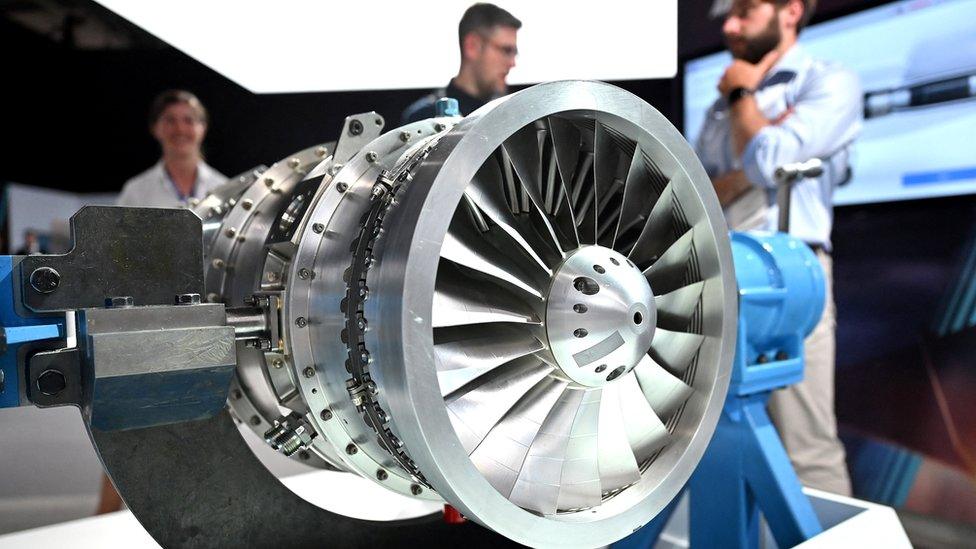
Rolls-Royce will design and build engines for the Tempest
All of this action will rely on entirely new engines. Rolls-Royce needs to power not just the Tempest's flight, but its entire complex, digital system. On-board, data-crunching could heat the plane up like an overburdened laptop.
Rolls-Royce engineers are plotting how to siphon off that heat while generating enough energy to keep Tempest's squadron of digital gadgets humming along.
"We want to power every aspect of the system," says John Wardell, Rolls-Royce future programmes director.
The UK government has already committed £2bn to the Tempest project and that figure will multiply before the jet enters service. Yet, an obvious question remains. Why not just build more of the existing Typhoon fighter?
BAE Systems says that by 2040 the UK and its allies will face new threats and more sophisticated weapons. This calls for appropriate technology in response. Tempest will be a fighter for the second half of a digital century.
How state-of-the art technology is shaping new fighter jets.
The export success of the Typhoon also explains much of the UK government's enthusiasm for Tempest. The Typhoon has contributed £21bn to the UK economy while supporting over 20,000 jobs,, external after a state investment of £12bn, the company claims.
No doubt both the fighter consortium and the UK government will be keen to reap similar rewards from the next generation of fighter jet.
- Published19 July 2022
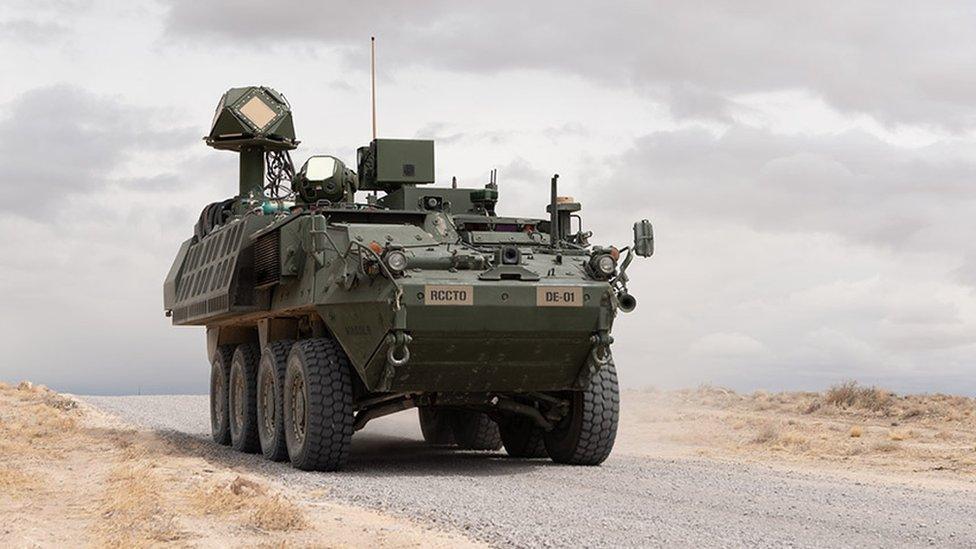
- Published18 July 2022
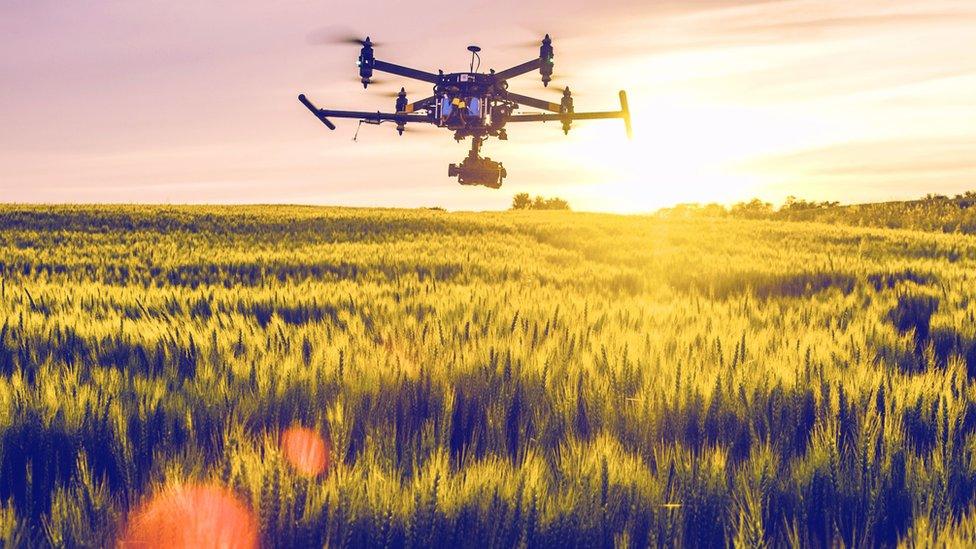
- Published19 July 2022
- Published10 July 2018

- Published20 July 2022